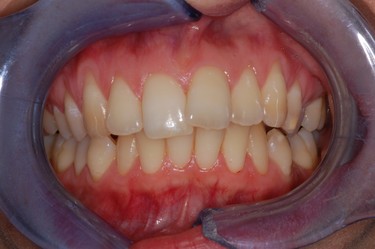
Recently, there has been a heightened focus among researchers on the exploration of the connection between gum disease and cardiovascular well-being. Although not all individuals with gum issues will necessarily develop heart conditions, both health concerns do share several common risk factors, such as an unhealthy diet and smoking. Furthermore, there is a growing suspicion that gum disease could function as an independent risk factor for the onset of heart disease.
The intersection of gum disease, heart health, and overall wellness underscores the significance of maintaining oral health. A meticulous oral care routine and the guidance of a trusted dental professional can aid in safeguarding not just your gums but also your heart and circulatory system.
Cardiovascular Health and Gum Disease
Safeguarding the health of your teeth and gums through proper oral hygiene practices like brushing and flossing is of paramount importance. In fact, studies conducted by the American Heart Association (AHA) indicate that individuals who brush their teeth twice daily for about two minutes have a reduced risk of developing cardiovascular issues. Furthermore, research in Sweden uncovered the prevalence of gum disease in individuals who experienced their first heart attack.
Gum disease weakens the tissue surrounding the teeth, facilitating the formation of plaque just beneath the gumline. This process can lead to gingivitis, the earliest stage of gum disease. If left unattended, gingivitis can progress to periodontitis. As gum disease advances, the bacteria infecting the gums can enter the bloodstream, triggering inflammation, damaging blood vessels, and affecting vital organs, including the heart. Consequently, individuals with inadequate oral health may face a heightened risk of cardiovascular problems like heart attacks and strokes compared to those with good oral health.
Caring for Your Gums
Early identification stands as one of the most effective defenses against gum disease and its associated health complications. By maintaining vigilance regarding your oral hygiene practices and recognizing the typical signs of gum disease, you can address gum health concerns before they worsen. Common signs of gum disease encompass:
- Persistent bad breath.
- Swollen, tender, or red gums.
- Receding gums.
- Bleeding during brushing, flossing, or consuming hard foods.
If any of the aforementioned symptoms become apparent, it is essential to promptly contact your dentist. When diagnosed at an early stage, treating mild gum disease (gingivitis) involves a straightforward process that predominantly centers on upholding sound oral hygiene practices. This includes brushing and flossing your teeth twice daily or more and scheduling biannual dental cleanings and assessments with your dentist.
There are instances where gum disease has advanced to more severe stages, referred to as periodontitis, your dentist may suggest scaling and root planing. In this procedure, your dentist removes plaque and tartar deposits situated below the gumline and smoothens the tooth roots to promote attachment with the gums. The most severe cases of gum disease requires oral surgeries like gum tissue grafts, pocket reduction procedures, or guided tissue regeneration may be necessary.
In Conclusion
Your oral health constitutes a crucial component of your general well-being and quality of life, impacting your ability to chew comfortably, communicate clearly, and smile confidently. Given the potential links between gum disease and heart disease, you now have an additional incentive to prioritize your oral health. If you harbor any inquiries or apprehensions regarding your oral or overall health, do not hesitate to reach out to your dentist or primary care physician.




